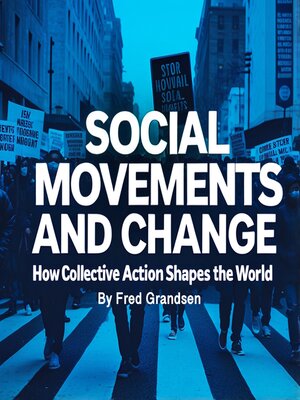Social Movements and Change
audiobook (Unabridged) ∣ How Collective Action Shapes the World
By Fred Grandsen

Sign up to save your library
With an OverDrive account, you can save your favorite libraries for at-a-glance information about availability. Find out more about OverDrive accounts.
Find this title in Libby, the library reading app by OverDrive.



Search for a digital library with this title
Title found at these libraries:
| Library Name | Distance |
|---|---|
| Loading... |
Social movements have long been a driving force for change, shaping societies and influencing policies across the world. These movements emerge when groups of people collectively organize to challenge existing social, political, or economic conditions. They can be sparked by various grievances, including inequality, injustice, environmental concerns, or human rights violations. Throughout history, social movements have played a critical role in securing rights, shifting cultural attitudes, and restructuring institutions, proving that collective action has the power to transform society.
One of the defining features of social movements is their ability to mobilize people around a shared cause. Unlike isolated acts of resistance, social movements are sustained efforts that involve coordination, strategy, and widespread participation. They can take different forms, ranging from peaceful protests and grassroots organizing to legal advocacy and digital activism. Movements may operate at local, national, or even global levels, depending on the scope of their goals and the issues they address. The Civil Rights Movement, the Women's Suffrage Movement, and modern climate activism are all examples of how collective efforts have led to significant social and political shifts.
Social movements can be categorized in various ways based on their objectives and methods. Reform movements seek to change specific laws or policies without overthrowing the existing system, such as labor rights movements advocating for better working conditions. Revolutionary movements, on the other hand, aim for more radical transformation, challenging and replacing entire political or social structures. Other types include resistance movements, which emerge in opposition to certain policies or cultural shifts, and new social movements, which focus on issues like identity, environmental concerns, and globalization.







